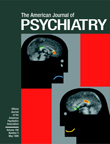To the Editor: I appreciate the comments by Carl I. Cohen, M.D., and Richard S. Schwartz, M.D., and Jacqueline Olds, M.D., about my recent article. Dr. Cohen questions the validity of my analyses from several perspectives. It is unclear to me precisely what he means when he states that this study had “no method for measuring environmental variability.” The social interactions of the twins were not directly observed, nor would it have been feasible to do so with such a large sample size. However, we did ask twins to describe a number of aspects of their social environment. Is this not a measure of “environmental variability”? I also found his comments about height perplexing. Height is highly heritable in all human populations in which it has been studied, and its heritability would not be expected to decrease unless, like Procrustes, you introduced environmental variation far outside the range of that normally experienced. Perhaps Dr. Cohen is making the same point that I have argued elsewhere: that twin studies inform us about a specific population at a specific time, given a specific range of environmental experiences
(1).
The question of whether this study was biased by differential environmental influences on monozygotic versus dizygotic twins was specifically addressed in the article. Monozygotic and dizygotic twins did not meaningfully differ in their level of social support, nor did similarity of environmental experience in childhood or adulthood systematically influence twin resemblance for social support. The validity of this equal environment assumption in twin studies has been extensively examined elsewhere
(2–
5).
We did not include nonadditive genetic factors in our models because the raw data provided no evidence for such factors, which produce monozygotic twin correlations substantially greater than twice those seen in dizygotic twins. The correlations in monozygotic and dizygotic twins, respectively, averaged across the two times of measurement for the six dimensions of social support, were relative problems (0.38, 0.26), friend problems (0.27, 0.13), relative support (0.33, 0.25), confidants (0.28, 0.15), friend support (0.22, 0.13), and social integration (0.38, 0.19).
I agree that the six dimensions of social support are unlikely to represent independent dimensions. However, the twin analyses were performed on factor-derived scales rather than on the actual factor scores themselves. The relationship of the genetic and environmental factors that influence these six dimensions can be tackled directly through a multivariate genetic analysis
(1). However, this would have increased the complexity of the manuscript considerably.
I fully agree with the main point of Drs. Schwartz and Olds. There is no necessary relationship between heritability and plasticity—either within or across cultures. Highly heritable traits can be substantially influenced by environmental effects, particularly those that are outside the range of those commonly experienced. Phenylketonuria, which is far more heritable than social support, can be markedly influenced by the simple environmental manipulation of removing phenylalanine from the diet.
A wonderful recent article has provided additional support for the view that individuals play a strong role in creating their own social environment
(6). The level of social support of Japanese high school students was assessed when they lived at home and in the middle of a 1-year program as exchange students in a foreign country. Between 24% and 69% of the variance in social support measures was stable across both situations, suggesting that in widely different environments, individuals tend to recreate for themselves a similar social environment.

